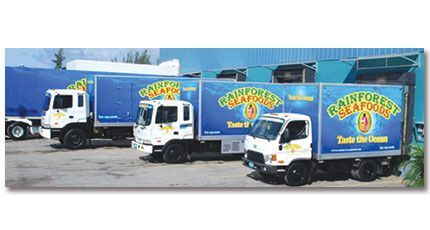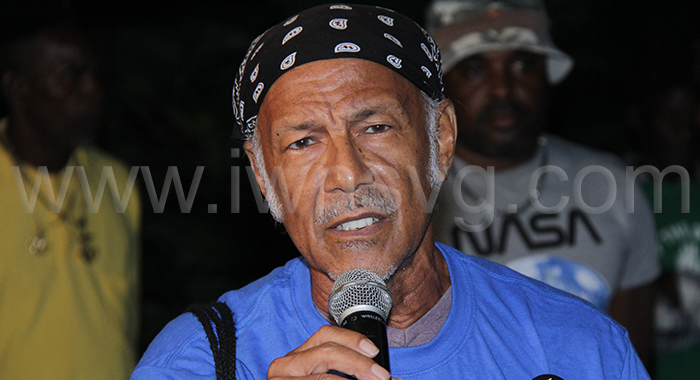

Some frightening information was published by the online service St. Vincent TIMES, on September 27, 2024. In the story, under the headline ‘SVG Gov’t could import fish as stocks dwindle: Minister’, the Minister of Agriculture/Fisheries was quoted as saying that he visited the fish market recently, and there were no fish vendors at some of the stalls. He cited the lack of fish as contributing to this situation.
“I visited the fish market a few days ago and of the approximately 15 stalls, there were several that did not have fish. And because of that, we have to work with several other governments to see how we can import some fish in the interim,” the Minster said.
He went on: “The increase in temperatures that we are facing is going to have an impact and is already having an impact on our catch, the national catch. I am also pleased that we managed to reach a consensus regarding the conch season,” stating among other things, “that this year we will not have a closed (conch) season as planned and that we will relook that proposal in 2026.”
Something seems to have gone drastically wrong in just a few years.
it all
Whether it was two or three years ago, I read in the local press where a consulting agency was commissioned to do a study on the marine resources of SVG, with particular reference to the local conch (strombus gigas). The study found that our conch stock was in a healthy state, which could be maintained with the requisite sustainable methods of harvesting, which includes observing a closed season. This study was done less than five years ago.
How then, in such a short space of time could our fishing stock be depleted? And why should we have a year-round open season for conch when our sea food quantities are dwindling or becoming less. Not having a closed season will be defeating the practice of ‘sustainable’ fishing and harvesting of our vital marine stocks. If we over fish, especially as it relates to conch and lobsters, it will break the life cycle of these marine species.
Studies done by former Fisheries Officer, the late Kerwin Morris and other regional maritime scientists discovered that the life cycle of conch and lobsters that we harvest in SVG, actually starts off the coast of Brazil with ocean currents bringing the juveniles, which feed on plankton, to our waters. As they mature and the ocean current takes them to our part of the world, they change their feeding habits and descend to the sea floor to begin another phase of their development. When they mature and release their eggs in our waters, the ocean currents take these hatchlings on a similar journey to re-populate the coastlines in Central America including Belize and Honduras. The process repeats itself with the eggs from central America re-populating Brazil. So, if we break the cycle by over-harvesting, which is what the all year open season will allow, in years to come there will be very few conch and lobsters in this part of the world. To ensure future stocks, we MUST as a matter of urgency, maintain an annual closed season for both conch and lobsters.
Save our fishing industry

To what degree is the agreement with Rainforest affecting the availability of fish/marine stock on the local market?
Fri, Oct 04, 2024
Some frightening information was published by the online service St. Vincent TIMES, on September 27, 2024. In the story, under the headline ‘SVG Gov’t could import fish as stocks dwindle: Minister’, the Minister of Agriculture/Fisheries was quoted as saying that he visited the fish market recently, and there were no fish vendors at some of the stalls. He cited the lack of fish as contributing to this situation.
“I visited the fish market a few days ago and of the approximately 15 stalls, there were several that did not have fish. And because of that, we have to work with several other governments to see how we can import some fish in the interim,” the Minster said.
He went on: “The increase in temperatures that we are facing is going to have an impact and is already having an impact on our catch, the national catch. I am also pleased that we managed to reach a consensus regarding the conch season,” stating among other things, “that this year we will not have a closed (conch) season as planned and that we will relook that proposal in 2026.”
Something seems to have gone drastically wrong in just a few years.
A study tells it all
Whether it was two or three years ago, I read in the local press where a consulting agency was commissioned to do a study on the marine resources of SVG, with particular reference to the local conch (strombus gigas). The study found that our conch stock was in a healthy state, which could be maintained with the requisite sustainable methods of harvesting, which includes observing a closed season. This study was done less than five years ago.
How then, in such a short space of time could our fishing stock be depleted? And why should we have a year-round open season for conch when our sea food quantities are dwindling or becoming less. Not having a closed season will be defeating the practice of ‘sustainable’ fishing and harvesting of our vital marine stocks. If we over fish, especially as it relates to conch and lobsters, it will break the life cycle of these marine species.
Studies done by former Fisheries Officer, the late Kerwin Morris and other regional maritime scientists discovered that the life cycle of conch and lobsters that we harvest in SVG, actually starts off the coast of Brazil with ocean currents bringing the juveniles, which feed on plankton, to our waters. As they mature and the ocean current takes them to our part of the world, they change their feeding habits and descend to the sea floor to begin another phase of their development. When they mature and release their eggs in our waters, the ocean currents take these hatchlings on a similar journey to re-populate the coastlines in Central America including Belize and Honduras. The process repeats itself with the eggs from central America re-populating Brazil. So, if we break the cycle by over-harvesting, which is what the all year open season will allow, in years to come there will be very few conch and lobsters in this part of the world. To ensure future stocks, we MUST as a matter of urgency, maintain an annual closed season for both conch and lobsters.
What does the future hold?
So where do we go from here? Is it that Rainforest is buying most of the fish and at a cheaper rate than what locals pay in the market? If this is the case, the government must revisit the arrangement with Rainforest and reduce the quotas they are allowed. Why should we be importing fish and must pay more for that commodity, while we are at the same time exporting fresh fish obtained locally at a cheaper price? Reliable information states that a supermarket chain here is already importing kingfish from Trinidad. Where are we really heading?
A local fish vendor explained to me that ‘Ballahoo’ cannot be harvested for the next two years as local fishers were harvesting too many of the young ones. Good move, but what about the report from the FAO that illegal and unreported fishing is done in our waters, mainly by China, Taiwan and Europe, to the tune of US$750m every year? Isn’t that the main reason for the short fall in landings of pelagic species like tuna, kingfish, sword fish and dolphin (mahi mahi) among other species?
What really needs restructuring is the post-colonial style government and so-called opposition!
Donald De Riggs





